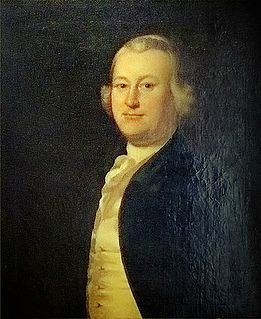A Quote by Thomas Jefferson
A prince whose character is thus marked by every act which may define a tyrant, is unfit to be the ruler of a people who mean to be free.
Related Quotes
Freedom of mind is the real freedom. A person whose mind is not free though he may not be in chains, is a slave, not a free man. One whose mind is not free, though he may not be in prison, is a prisoner and not a free man. One whose mind is not free though alive, is no better than dead. Freedom of mind is the proof of one's existence.
A people who free themselves from foreign domination will be free culturally only if,
without complexes and without underestimating the importance of positive accretions from
oppressor and other cultures, they return to the upward paths of their own culture, which is
nourished by the living reality of its environment, and which negates both harmful influences
and any kind of subjection to foreign culture. Thus, it may be seen that if imperialist
domination has the vital need to practice cultural oppression, national liberation is necessarily
an act of culture
Pity the nation whose statesman is a fox, whose philosopher is a juggler, and whose art is the art of patching and mimicking. Pity the nation that welcomes its new ruler with trumpetings, and farewells him with hootings, only to welcome another ruler with trumpetings again. Pity the nation whose sages are dumb with years and whose strong men are yet in the cradle. Pity the nation divided into fragments, each fragment deeming itself a nation.
People with what we call mental illness can indeed serve well, and people who have no discernible mental illness - and that may be true of Trump - may not be able to serve, may be quite unfit. So it isn't always the question of a psychiatric diagnosis. It's really a question of what psychological and other traits render one unfit or dangerous.
Are we to have a censor whose imprimatur shall say what books may be sold, and what we may buy? And who is thus to dogmatize religious opinions for our citizens? Whose foot is to be the measure to which ours are all to be cut or stretched? Is a priest to be our inquisitor, or shall a layman, simple as ourselves, set up his reason as the rule of what we are to read, and what we must believe?
A people may prefer a free government, but if, from indolence, or carelessness, or cowardice, or want of public spirit, they are unequal to the exertions necessary for preserving it. They are more or less unfit for liberty; and although it may be for their good to have had it even for a short time, they are unlikely long to enjoy it
Men were considered "free" only so that they might be considered guilty - could be judged and punished: consequently, every act had to be considered as willed, and the origin of every act had to be considered as lying within the consciousness (and thus the most fundamental psychological deception was made the principle of psychology itself).
The priest invents and encourages every kind of suffering and distress so that man may not have the opportunity to become scientific, which requires a considerable degree of free time, health, and an outlook of confident positivism. Thus, the religious authorities work hard to make and keep people feeling sinful, unworthy, and unhappy.
I define vulnerability as uncertainty, risk and emotional exposure. With that definition in mind, let’s think about love. Waking up every day and loving someone who may or may not love us back, whose safety we can’t ensure, who may stay in our lives or may leave without a moment’s notice, who may be loyal to the day they die or betray us tomorrow—that’s vulnerability.
May it not be asked of every intelligent friend to the liberties of his country, whether the power exercised in such an act as this ought not to produce great and universal alarm? Whether a rigid execution of such an act, in time past, would not have repressed that information and communication among the people which is indispensable to the just exercise of their electoral rights? And whether such an act, if made perpetual, and enforced with rigor, would not, in time to come, either destroy our free system of government, or prepare a convulsion that might prove equally fatal to it?
































